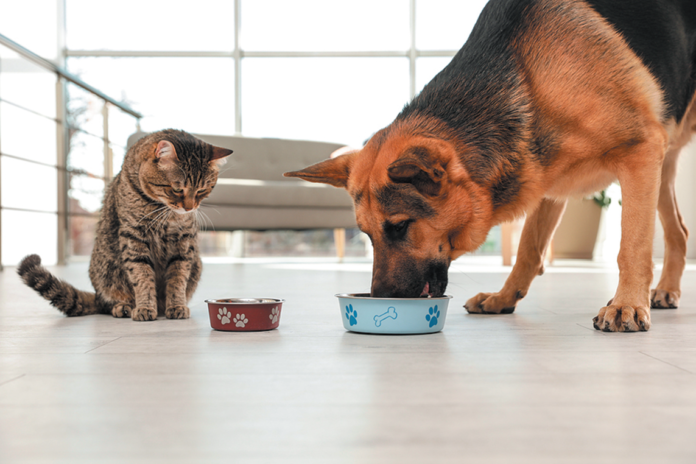At the level of folklore, it makes sense to think that a diet relatively low in protein would help inhibit aggressive tendencies in a dog. After all, throughout history protein has been the nutrient associated with red-blooded men who use aggression to hunt and then dine on protein-rich animal food to keep up their strength for the next kill. But is there really anything to it? And could protein levels in the diets of dogs influence their tendencies toward aggression?
In one study, dogs fed a diet relatively low in protein exhibited less territorial aggression than they formerly had. In another, dogs who directed aggression at their owners calmed down on a reduced-protein diet. But here’s the rub.
The studies were small and had design problems. Namely, the protein levels in the low-protein and high-protein foods weren’t significantly different. Moreover, to a certain degree the results were inconsistent. The first study suggested that less protein does not help with owner-directed aggression — a direct contradiction of the other study’s results. More research is needed.
Granted, there is a scientific rationale for the hypothesis that a lower-protein diet might help reduce a dog’s aggressive tendencies. Consider that protein reduces the amount of tryptophan that crosses the blood-brain barrier. Tryptophan is a precursor to serotonin, which is a mood-stabilizing brain chemical. So, if less tryptophan enters the brain and less serotonin is made, it makes sense to posit that a reduced-protein diet could potentially help regulate a dog’s mood and make him less aggressive.
But until harder evidence comes in, it’s better to rely on tried-and-true methods for helping an aggressive dog manage her behavior. Make sure your pet enjoys plenty of exercise and environmental enrichment (physical activity is critical for decreasing anxiety); predictability in her routine; loving and consistent communication from you that includes teaching her how to respond to cues to sit, come, stay, and so on; and, in some cases, medication such as an SSRI like fluoxetine.
If you want to try a reduced-protein food
While proof that a lower-protein regimen can help cut down on aggressive behavior remains scant at best, in most cases it won’t hurt a dog either. That’s because any diet that meets the standards of the Association of American Feed Control Officials (the label will state that it is formulated to meet the nutritional levels established by AAFCO or that it has gone through AAFCO-approved animal feeding trials) will have a minimum amount of protein to keep a dog healthy. In other words, while some dog foods are lower in protein than others, they are not low in protein — there’s no nutrient deficit.
But there’s no maximum. Some dog foods legally contain significantly more protein than others. (Those higher amounts will not harm a healthy dog.)
How do you choose one that’s relatively low in protein? It’s hard. Labels lack information that make it easy to compare brands on grams of protein per a specific number of calories. The best bet is to ask your veterinarian.
Note: If a veterinarian has prescribed medicine for your dog’s aggressiveness, it can potentially cause GI upset in addition to having an appetite-suppressant effect. You may not want to put your dog through adjusting to a new food when her stomach is in an uproar.





